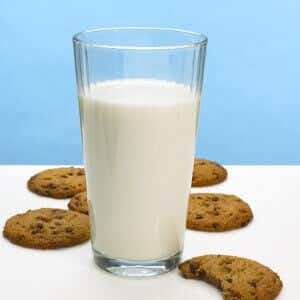
Have you ever had digestive problems after enjoying a milkshake or an ice cream sundae? Millions of Americans can’t readily digest milk sugar. They would welcome help in consuming dairy products without undue consequences.
Is Lactaid Safe Enough?
Q. I have found that Lactaid or a generic equivalent provides relief after years of suffering. Since I have milk in the morning, yogurt at lunch and ice cream at dinner (all fat-free or low-fat), my lactose intolerance was causing me problems.
If I have learned anything from reading your column, taking any medication or supplement for a long time might not be good for the body. Are there any long-term impacts I should be aware of?
Why Lactaid Helps:
A. People who lack the enzyme lactase cannot tolerate the sugar in milk, lactose. They frequently have symptoms such as bloating, abdominal cramps, flatulence and diarrhea after consuming dairy products.
Lactaid and comparable formulations contain lactase, the enzyme that breaks down milk sugar. In most cases, taking lactase will control symptoms of lactose intolerance. No frightening long-term consequences have been reported, and lactase supplementation is considered the standard of care (Ianiro et al, Current Drug Metabolism, Feb. 2016). While lactase supplements are very helpful, people still need to exercise some moderation to consume dairy products without digestive symptoms.
Timing Matters:
We recently heard this important information from a retired hospital registered dietitian:
“Please inform your readers that Lactaid/lactase tablets should be taken every 30 minutes as one continues to eat dairy products. I was told this by a Lactaid representative at a national trade show. People think the tablets don’t work because they eat cheese hors d’oeuvres at a party, 45 minutes later eat a milk-based meal. Finally they eat cheesecake with coffee 45 minutes later. The Lactaid tablet they took stopped working after the hors d’oeuvres.
“Having learned this, my spouse is happily eating dairy again.”
Lactase-Treated Dairy Products:
Many supermarkets also sell dairy products that have been pretreated to remove the majority of the lactose. Most people with lactose intolerance can drink pretreated milk without trouble.
A few people are so sensitive to milk sugar, however, that lactase-treated dairy products still cause them problems. These individuals also need to talk with their pharmacists to make sure the pills they are taking are lactose-free. Drug manufacturers often use lactose in tablet formulations (Profire et al, Journal of Pharmaceutical and Biomedical Analysis, online Jan. 19, 2017).
Watch Out for Lactose in Pills:
Avoiding lactose in pills may be more easily said than done, however, as one reader reported:
Q. I am extremely sensitive to lactose (milk sugar). My insurance company wants me to switch from Lipitor (which I take with a Lactaid pill) to a generic version, but the generic manufacturer refuses to tell me how much lactose their pills contain. We patients really can’t consider generic medicines identical to the brand name pills if the companies won’t come clean on their inactive ingredients.
A. We are dismayed that the company won’t give you this crucial information. It may not matter to most people, but for someone who is sensitive to lactose, it could make a huge difference.
Without the enzyme lactase to break down milk sugar, this product can cause a great deal of discomfort. Bloating, gas and diarrhea are the most common side effects.
Another reader wrote us:
“I have had stomach pain and diarrhea for years, but over the last few months it reached a crisis. The pain was so bad I couldn’t get comfortable sitting or even lying down. My stomach swelled up like a beach ball.
“My doctor didn’t know what was wrong. I finally asked my pharmacist if any of my pills had milk sugar (lactose). Every single one of the half dozen pills I take contains lactose. Even though I am extremely careful about my diet (no dairy products), I had no idea that my pills were poisoning me.”

